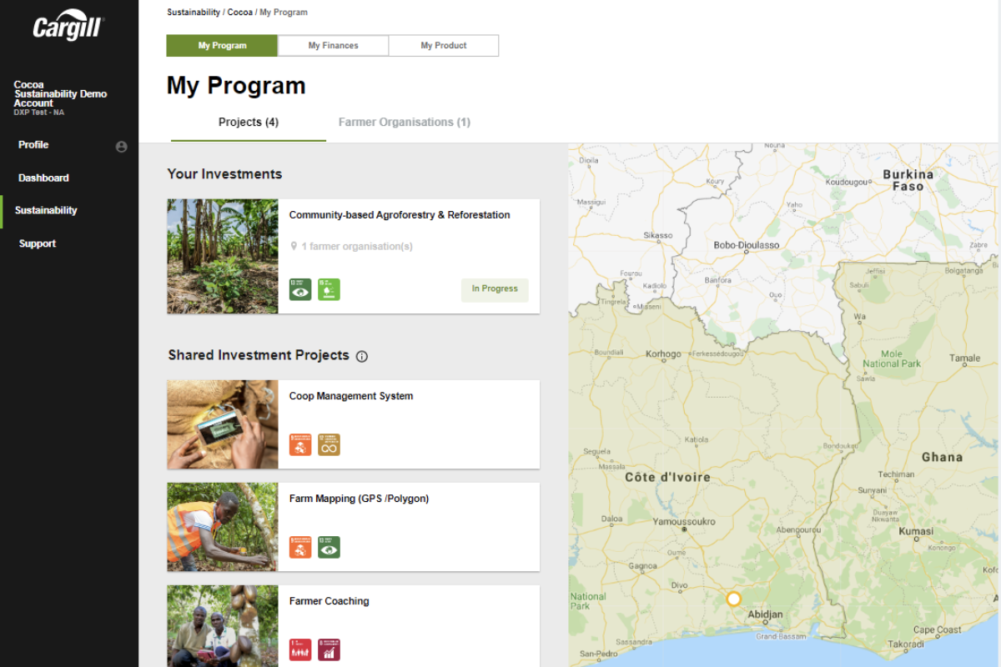MINNEAPOLIS — Cargill has introduced CocoaWise, a digital portal that provides food and beverage manufacturers with increased knowledge and shareability on the origin of products they source from Cargill’s direct supply chain.
“As one of the world’s leading cocoa and chocolate producers, we sit at the center of the cocoa sector and connect all the players in the value chain, from working hand-in-hand with the farmers to sustainably providing high-quality products to our customers,” said Harold Poelma, president of Cargill’s cocoa and chocolate business. “With cutting-edge technologies, like CocoaWise, we are able to strengthen this collaboration and move the industry forward together toward a more transparent and sustainable cocoa supply chain benefiting both farmers and customers.”
A CocoaWise interactive map and a CocoaWise bean tracker provide supply chain transparency. The map shows the name and location of the 128 cooperative offices in Ivory Coast, the 7 buying stations in Ghana and the 11 buying stations in Cameroon. The bean tracker involves cocoa cooperatives tracking the cocoa beans they manage back to the individual farm through cocoa bag bar codes. The bean tracker prevents beans from deforested areas entering Cargill’s supply chain.
A CocoaWise e-finance tool offers financial transparency by providing mobile money systems to farmers so they may be assured of being paid fairly, accurately and securely, according to Minneapolis-based Cargill.
Three other tools provide impact transparency. CocoaWise ProFarm, a set of digital tools, supports farmers in making decisions based on agronomy, weather and market access information. ProFarm gathers data, including geolocation, crop health, household and income data, to communicate with farmers. CocoaWise ProCoop is a set of tools that support famer cooperatives in selling and managing cocoa. It also manages first-mile traceability. CocoaWise Insight, a monitoring and evaluation system, tracks and monitors progress in achieving sustainability goals. Data included are tree density, cultivation methods, replanting activities, and information about families and their communities, including child labor monitoring.
“For years, we have been putting technology to work to help the 210,000 farmers in the five countries we purchase our cocoa,” said Taco Terheijden, sustainability director for Cargill’s cocoa and chocolate business. “This crop year alone, we invested an additional $3 million in traceability initiatives that allowed us to bring the data from our supply chain together in more powerful ways and help farmers enhance agricultural practices. If we want to make sure farmers have a bright future growing sustainable cocoa, we need to make sure consumers believe in it.”





